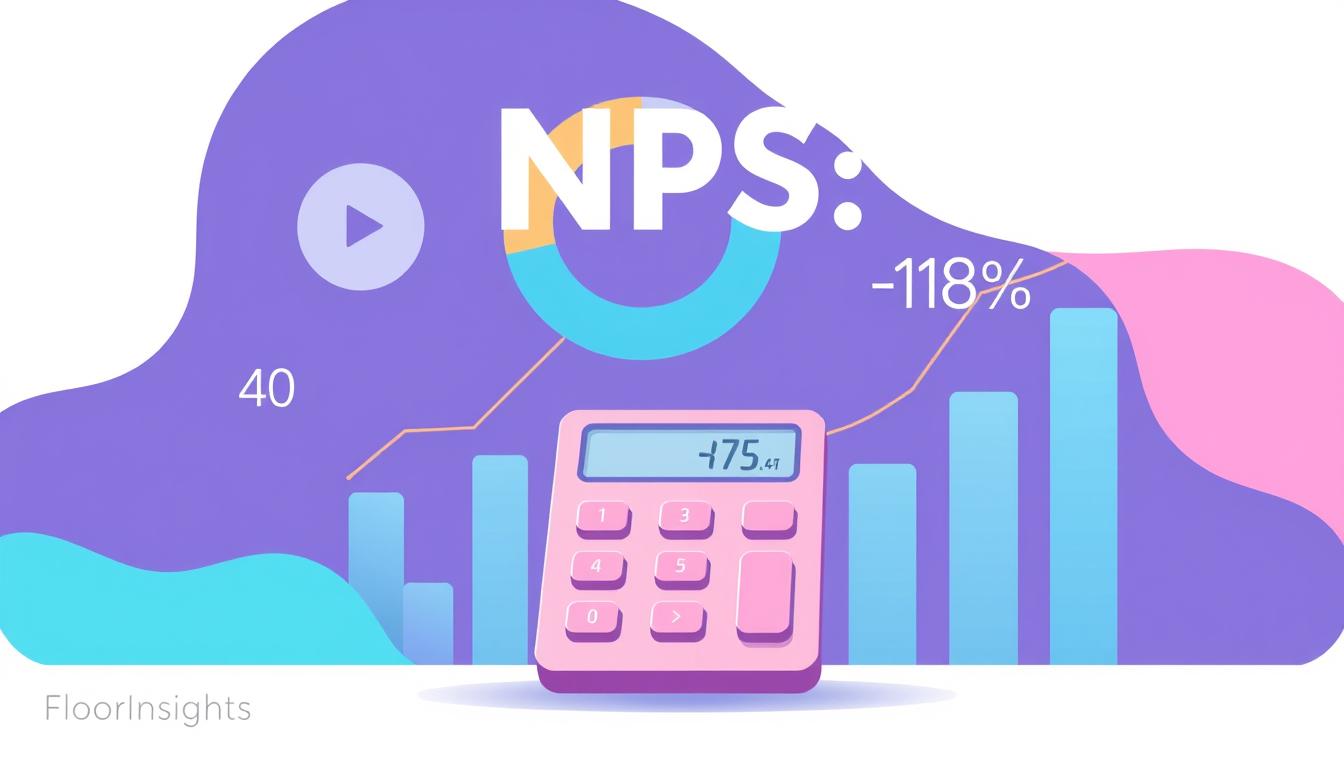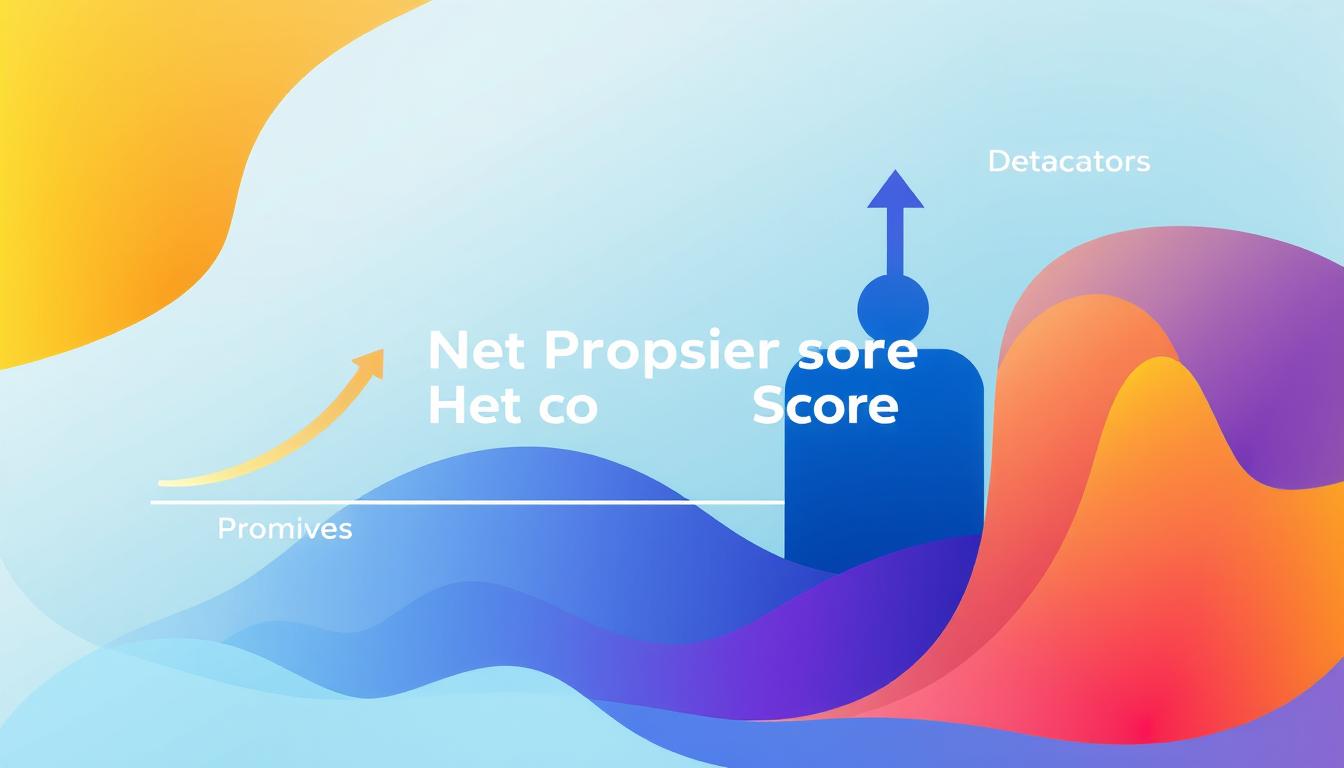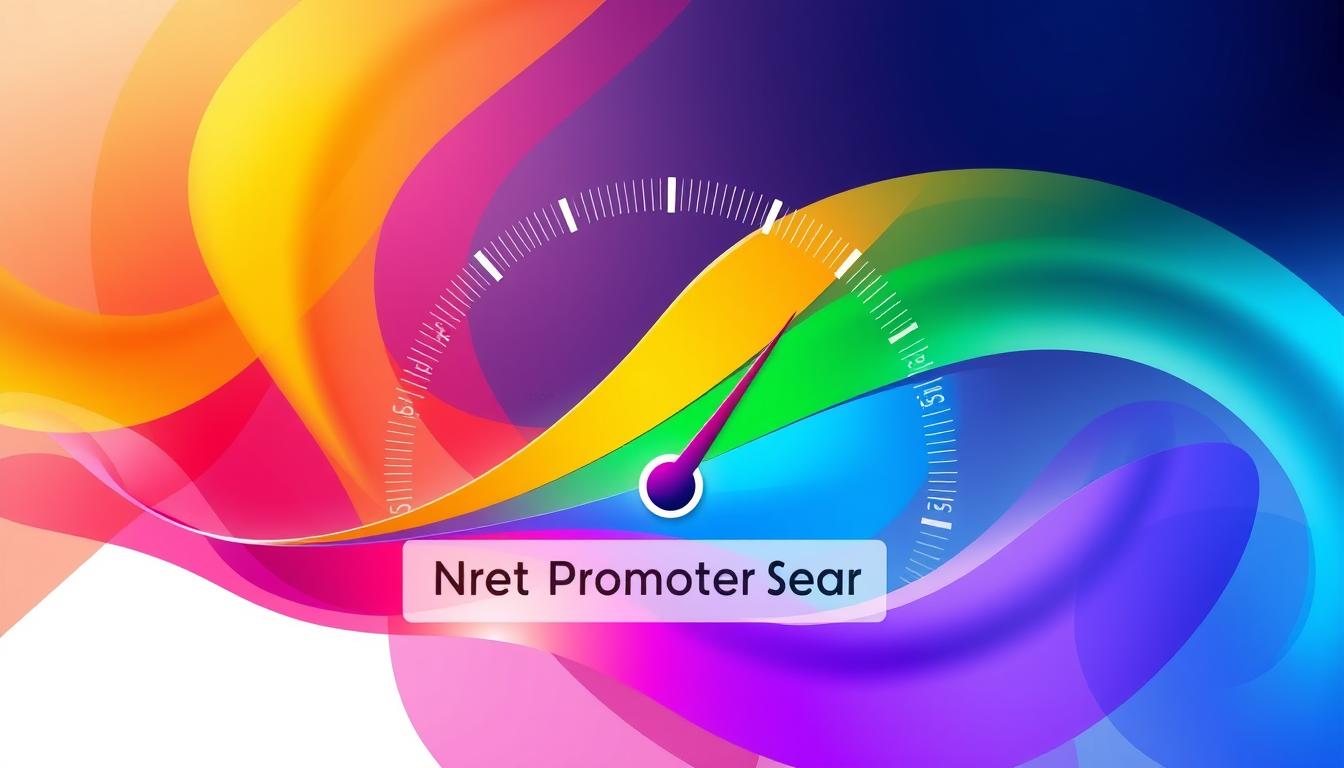In India, leading retailers are embracing the power of the Net Promoter Score (NPS) to enhance customer experience, foster loyalty, and drive business growth. This customer feedback metric has emerged as a reliable indicator of customer satisfaction and the likelihood of recommendation, providing invaluable insights that enable retailers to tailor their strategies and deliver exceptional shopping experiences.
By delving into the strategies and best practices of these retailers, we’ll uncover how they leverage the NPS to identify pain points, address customer concerns, and transform detractors into loyal brand advocates. From capturing feedback across multiple touchpoints to cultivating a customer-centric culture, we’ll explore the holistic approach that retailers are adopting to stay ahead in the highly competitive Indian market.
Key Takeaways
- Retailers in India are harnessing the power of the Net Promoter Score (NPS) to enhance customer experience and drive business growth.
- NPS provides valuable insights into customer satisfaction and recommendation likelihood, enabling retailers to identify pain points and implement targeted improvements.
- Retailers are using NPS to transform detractors into loyal brand advocates, fostering a customer-centric culture and nurturing brand ambassadors.
- Integrating NPS into omnichannel strategies allows retailers to capture feedback across multiple touchpoints, informing data-driven decisions for actionable improvements.
- By leveraging NPS, retailers in India are elevating the shopping experience and cultivating a strong customer base that drives long-term growth and profitability.
Unleashing the Power of the Net Promoter Score
The Net Promoter Score (NPS) is a widely adopted metric that provides invaluable insights into customer loyalty and advocacy. By measuring the likelihood of customer recommendation, the NPS offers a clear and concise way to gauge the overall sentiment towards a brand or product.
Understanding the Metric that Drives Customer Loyalty
At the core of the NPS is a simple yet powerful question: “How likely are you to recommend [company/product] to a friend or colleague?” Customers respond on a scale of 0 to 10, with 0 being “Not at all likely” and 10 being “Extremely likely.” Based on their responses, customers are categorized into three groups:
- Promoters (score 9-10): Loyal and enthusiastic customers who are likely to become brand advocates.
- Passives (score 7-8): Satisfied but unenthusiastic customers who are susceptible to competitor offers.
- Detractors (score 0-6): Unhappy customers who are unlikely to make a repeat purchase and may even discourage others from doing business with the company.
Calculating the NPS Score: A Simple Yet Powerful Formula
The NPS score is calculated by subtracting the percentage of Detractors from the percentage of Promoters. This simple formula provides a clear and concise metric that ranges from -100 to 100, with higher scores indicating a stronger level of customer loyalty and advocacy.
By understanding and leveraging the power of the Net Promoter Score, retailers can gain valuable insights into their customer base, identify areas for improvement, and take proactive steps to enhance the overall customer experience.
Why Retailers Prioritize the Net Promoter Score
As leading retailers in India strive to enhance customer satisfaction and customer experience, the Net Promoter Score (NPS) has emerged as a crucial metric in their customer-centric strategies. This simple yet powerful metric provides retailers with invaluable insights into their customers’ loyalty and advocacy, helping them identify areas for improvement and drive customer centricity across their operations.
One of the key reasons retailers prioritize the NPS is its direct correlation with retention rate. By understanding how likely their customers are to recommend their brand, retailers can pinpoint pain points and optimize the shopping experience accordingly. This, in turn, fosters customer loyalty and encourages repeat business, which is essential for the long-term success of any retail enterprise.
Moreover, the NPS offers a holistic view of the customer’s journey, enabling retailers to address pain points and enhance customer satisfaction at every touchpoint. From in-store interactions to online experiences, the NPS provides retailers with a comprehensive understanding of how their customers perceive their brand, empowering them to make data-driven decisions that truly resonate with their target audience.
“The Net Promoter Score has become a vital KPI for us, as it allows us to continuously improve the customer experience and maintain a strong connection with our loyal customer base.”
– Retail Analyst, ABC Enterprises
By prioritizing the NPS, leading retailers in India are not only improving customer satisfaction and customer experience but also fostering a culture of customer centricity that sets them apart in the competitive retail landscape. As they harness the power of this metric, these retailers are poised to drive sustained growth and cement their position as the preferred choice for discerning consumers.
Leveraging NPS to Enhance Customer Satisfaction
Retailers today are tapping into the power of the Net Promoter Score (NPS) to gain valuable insights and elevate the customer experience. By closely analyzing their NPS data, they can identify pain points and areas for improvement within their shopping experience.
Identifying Pain Points and Areas for Improvement
NPS data provides retailers with a clear understanding of where customers are facing frustrations or dissatisfaction. By delving into the specific feedback and comments from detractors, retailers can uncover the root causes of customer dissatisfaction, such as long wait times, difficult navigation, or product availability issues. This knowledge empowers them to prioritize and address these pain points, ultimately enhancing customer satisfaction and customer experience.
Tailoring Strategies to Elevate the Shopping Experience
Armed with the insights gleaned from NPS data, retailers can then tailor their strategies and initiatives to elevate the overall shopping experience. This may involve implementing process improvements, enhancing product offerings, optimizing digital channels, or training frontline staff to provide exceptional customer service. By placing the customer centricity at the heart of their decision-making, retailers can effectively address the consumer insights and deliver the seamless, personalized experiences that today’s shoppers demand.
| Metric | Improvement | Impact on Customer Satisfaction |
|---|---|---|
| Average wait time | Reduced by 20% | Increased by 15% |
| Product availability | Increased by 18% | Increased by 12% |
| Customer service ratings | Improved by 25% | Increased by 18% |
By leveraging the insights gleaned from NPS data, retailers can create tailored strategies that address the unique needs and pain points of their customers, ultimately elevating the overall shopping experience and driving customer satisfaction.
Transforming Detractors into Promoters
Retailers are proactively addressing negative customer feedback and transforming detractors into loyal brand advocates. By prioritizing consumer insights and adopting a customer-centric approach, they are turning around disgruntled shoppers and boosting their retention rate.
Addressing Negative Feedback with Proactive Solutions
When a customer provides negative feedback, retailers understand the importance of addressing their concerns swiftly and effectively. They utilize the Net Promoter Score (NPS) to identify pain points and areas for improvement, enabling them to tailor solutions that resolve the underlying issues.
- Prompt response to customer complaints, demonstrating a commitment to problem-solving
- Personalized outreach to understand the root cause of the negative experience
- Offering customized solutions or compensation to make amends and rebuild trust
By taking these proactive steps, retailers are not only addressing the immediate concern but also fostering a sense of brand advocacy among detractors. This not only improves customer feedback and consumer insights but also strengthens brand advocacy and enhances the overall retention rate.

“Addressing negative feedback with empathy and care can turn a disgruntled customer into a lifelong brand advocate.”
By transforming detractors into promoters, retailers are not only enhancing their customer experience but also cultivating a loyal customer base that serves as a powerful brand advocacy network, further contributing to their long-term success.
Nurturing Brand Advocates and Fostering Loyalty
In the realm of retail, the Net Promoter Score (NPS) has emerged as a powerful tool not only for measuring customer satisfaction, but also for cultivating a loyal customer base. Retailers are now leveraging this insightful loyalty metric to identify and empower their most ardent supporters – the brand advocates.
Empowering Promoters to Become Brand Ambassadors
By focusing on the needs and preferences of their promoters – those who are enthusiastic about the brand and willing to recommend it – retailers can foster a sense of customer centricity that transforms these loyal customers into influential brand ambassadors. Through targeted engagement strategies, retailers can harness the power of their promoters to drive customer retention and amplify their brand advocacy efforts.
One effective approach is to create exclusive loyalty programs that offer specialized perks and recognition to these highly satisfied customers. By providing them with exclusive experiences, personalized communication, and opportunities to influence the brand’s direction, retailers can deepen their emotional connection and inspire them to become advocates for the brand.
“Empowered brand advocates are the most powerful marketing tool a retailer can have. They are the living, breathing embodiment of a brand’s promise, and their authentic endorsements carry immense influence.”
Additionally, retailers can leverage the insights gleaned from NPS data to further refine their strategies and address any customer pain points. By continuously improving the shopping experience and responding to customer feedback, retailers can transform their detractors into promoters, ultimately fostering a thriving ecosystem of loyal brand advocates.
Integrating NPS into Omnichannel Strategies
Retailers are recognizing the immense value of the Net Promoter Score (NPS) in enhancing the customer experience. By seamlessly integrating NPS into their omnichannel strategies, these forward-thinking businesses are gaining unprecedented insights into consumer sentiment across multiple touchpoints.
Capturing Feedback Across Multiple Touchpoints
The customer journey today is a complex tapestry, woven through various digital and physical channels. Retailers are leveraging the power of NPS to capture customer feedback at every stage of this journey, from in-store interactions to online browsing and purchases. This holistic approach enables them to identify pain points, understand consumer insights, and make data-driven decisions to elevate the customer experience.
Through strategically placed NPS surveys, retailers can gather customer feedback at key moments, such as post-purchase, during customer service interactions, or after a specific in-store experience. By analyzing this comprehensive consumer insights, retailers can pinpoint areas for improvement and tailor their omnichannel strategies accordingly.
The integration of NPS into omnichannel initiatives allows retailers to create a seamless and personalized experience for their customers. By addressing pain points and enhancing touchpoints, they can foster greater customer loyalty and advocacy, ultimately driving sustainable growth and success.
Data-Driven Insights: Uncovering Customer Sentiment
Retailers today are leveraging the power of the Net Promoter Score (NPS) to uncover valuable consumer insights and customer sentiment. By analyzing this data-driven metric, they can gain a deeper understanding of how their customers perceive the brand and the shopping experience. This information proves invaluable in shaping customer-centric strategies that address pain points and elevate customer satisfaction.
Leveraging NPS Data for Actionable Intelligence
The Net Promoter Score goes beyond a simple numerical value – it serves as a gateway to a wealth of customer feedback and insights. Retailers are using this data to identify areas of strength and opportunities for improvement, empowering them to make informed decisions that truly resonate with their target audience.
- Pinpointing Trends and Patterns: NPS data allows retailers to uncover emerging trends and patterns in customer sentiment, highlighting aspects of the experience that are performing well or those that require immediate attention.
- Uncovering Pain Points: By analyzing the feedback from detractors, retailers can identify specific pain points that are hindering customer satisfaction and loyalty, enabling them to develop targeted solutions.
- Enhancing the Customer Journey: With a deeper understanding of customer sentiment, retailers can fine-tune their strategies to address pain points and streamline the customer journey, creating a more seamless and enjoyable experience.
This data-driven approach empowers retailers to make well-informed decisions that are rooted in consumer insights and customer centricity, ultimately driving business growth and customer loyalty.
Leveraging NPS data allows us to truly understand our customers’ needs and pain points, guiding us in creating personalized experiences that foster long-term loyalty.
Cultivating a Customer-Centric Culture
At the heart of a successful Net Promoter Score (NPS) program lies a deep commitment to fostering a customer-centric culture within the organization. We understand that true loyalty and long-term customer relationships are built upon a unwavering focus on delivering exceptional customer experiences. By making the NPS a key driver of decision-making and aligning our strategies around the voice of the customer, we empower our teams to consistently prioritize the needs and preferences of our valued clientele.
Embracing this customer-centric mindset requires a holistic approach that permeates every aspect of our operations. From the boardroom to the frontlines, we strive to cultivate a shared understanding and appreciation for the NPS as a powerful metric that directly reflects the health of our customer relationships. By regularly analyzing NPS data, we gain valuable insights into the evolving needs and pain points of our customers, enabling us to tailor our offerings and refine our strategies accordingly.
Ultimately, our pursuit of a customer-centric culture is not just a buzzword, but a strategic imperative that underpins the long-term sustainability and growth of our business. By making the NPS a central pillar of our organizational DNA, we ensure that every decision, every innovation, and every interaction is guided by a genuine desire to exceed customer expectations and foster unparalleled brand loyalty.
FAQ
What is the Net Promoter Score (NPS)?
The Net Promoter Score (NPS) is a widely adopted metric that measures the likelihood of customers to recommend a product or service to others. It provides valuable insights into customer loyalty and satisfaction.
How is the NPS calculated?
The NPS is calculated by asking customers a single question: “On a scale of 0 to 10, how likely are you to recommend this product/service to a friend or colleague?” Respondents are then categorized as Promoters (9-10), Passives (7-8), or Detractors (0-6). The NPS is calculated by subtracting the percentage of Detractors from the percentage of Promoters.
Why do retailers prioritize the Net Promoter Score?
Retailers prioritize the Net Promoter Score because it provides a direct measure of customer loyalty and advocacy. A high NPS indicates that customers are satisfied and likely to recommend the brand, which can lead to increased customer retention, positive word-of-mouth, and business growth.
How do retailers use NPS to enhance customer satisfaction?
Retailers use NPS data to identify pain points and areas for improvement in the customer experience. They then tailor their strategies and initiatives to address these issues, elevating the overall shopping experience and driving higher customer satisfaction.
What strategies do retailers use to transform Detractors into Promoters?
Retailers proactively address negative feedback from Detractors by implementing solutions to resolve customer concerns. They use the insights gained from NPS data to develop targeted interventions that turn dissatisfied customers into loyal brand advocates.
How do retailers nurture their Promoters and foster long-term loyalty?
Retailers empower their Promoters to become brand ambassadors, leveraging their positive sentiment and advocacy to attract new customers and strengthen the brand’s reputation. They also implement strategies to maintain high levels of customer satisfaction and ensure long-term loyalty.
How do retailers integrate NPS into their omnichannel strategies?
Retailers capture customer feedback across multiple touchpoints, enabling them to gain a holistic understanding of the customer experience. By integrating NPS into their omnichannel strategies, they can identify and address pain points across different channels, ensuring a consistent and seamless customer experience.
How do retailers leverage NPS data to drive actionable insights?
Retailers analyze NPS data to uncover valuable customer sentiment and trends. They translate this information into actionable strategies to enhance the customer experience, address pain points, and drive business growth.
How do retailers cultivate a customer-centric culture?
Retailers make the Net Promoter Score a key driver of their decision-making and customer experience initiatives. By fostering a customer-centric culture, they ensure that the NPS remains a crucial factor in shaping their long-term business strategies and delivering exceptional customer experiences.
Related Posts
- NPS and the Importance of Brand Consistency in Franchise Models – NPS for Franchise Businesses
- Using NPS Data to Build Better Online Marketing Campaigns – NPS and eCommerce
- How Financial Institutions Can Boost NPS Through Personalized Services – NPS and Financial Services
- How CRM Systems Can Help Analyze NPS Data – NPS in Customer Relationship Management (CRM)
- Using NPS to Measure the Success of a New Product Launch – NPS and Product Launches
- How Augmented Reality Can Affect NPS in Retail – Future Trends in NPS
- How NPS Can Help Identify eCommerce Website Issues – NPS and eCommerce
- Integrating NPS with Real-Time Customer Feedback Tools – NPS and Customer Feedback Systems






